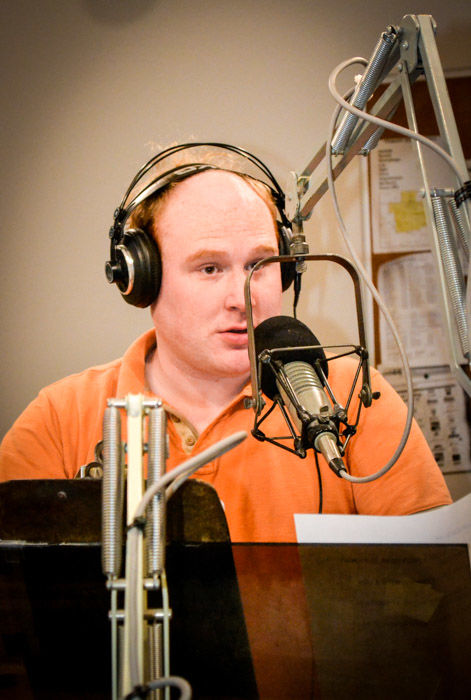WNIJ radio funding at risk
February 19, 2018
DeKALB — President Donald Trump proposed, Feb. 12, cutting funding to the Corporation for Public Broadcasting to reduce federal spending.
If passed, the proposal would eliminate a significant portion of the budget for NPR and PBS stations. DeKalb’s own NPR affiliate, WNIJ, would lose 15 percent of its budget.
WNIJ General Manager Staci Hoste said funding for the Corporation for Public Broadcasting has overwhelming public support, and investment in public television and radio is one of the most effective investments the government makes.
Federal funding for public broadcasting was created in 1967 when congress passed the Public Broadcasting Act. It costs taxpayers $1.35 per person each year.
Hoste said WNIJ raises about six times what they get from taxes per year from other sources, like donations. The $445 million given to public broadcasting makes up slightly more than one tenth of a percent of the federal budget.
“This won’t just affect us nationally.” Hoste said. “This will be broadly devastating to us and to the system. This would be catastrophic.”
In 2016, WNIJ had a revenue of just under $1.97 million, but spent $2 million, according to WNIJ’s 2016 annual report.
Hoste said the money WNIJ receives goes toward providing news, music and distributing their content digitally. WNIJ would be forced to limit their programming to stay afloat without the money from the federal government.
WNIJ is the only public radio station in northern Illinois, with signals reaching the southern portion of Wisconsin down to central Illinois. The station receives 38 percent of its revenue from membership fees and donations, according to its 2016 annual report. They also receive funding from NIU, which makes up 26 percent of their budget. Funding from the Corporation for Public Broadcasting makes up 15 percent of their revenue.
Patricia Harrison, Corporation for Public Broadcasting president and CEO said a reduction to public broadcasting “would at first devastate, and then ultimately destroy public media’s ability to provide early childhood content, life-saving emergency alerts and local journalism,” in a Feb. 12 Corporation of Public Broadcasting statement.
PBS has been ranked by viewers as the most trusted institution for the 15th year in a row in a January 2017 study conducted by Marketing and Research Resource Inc.,a company that conducts market reseach and analysis, according to a Feb. 23, 2017, PBS press release.
“[The Corporation for Public Broadcasting] is such a small part of the federal budget, that defunding it is more detrimental than funding it,” said Ian Pearson, president of the NIU College Democrats. “The proposed budget last year had the same cut included in it and congress didn’t go through with it. I’m optimistic that it’s not going to happen.”







